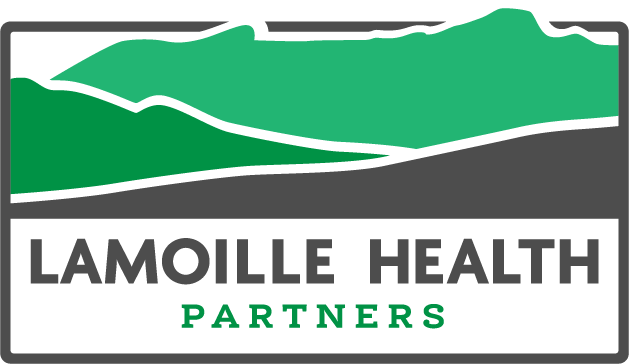By Kassandra Verhusen, FNP, Lamoille Health Partners Family Medicine
Do you ever wonder why your care team asks you questions about your relatives and their health issues? Your doctor, nurse, or medical assistant might ask whether your parents had diabetes or if anyone in your family had high blood pressure, for example.
It probably seems like a question that doesn’t apply to you — but actually it does.
For everyone in the family, health history can be an important factor that helps medical professionals predict who might be at higher risk for certain medical conditions. Then, together, you can work to reduce that risk. In some cases, knowing your parents’ health conditions can help your doctor diagnose issues you and your children might have too.
What is a family health history?
A family health history is simply a record of the diseases and health conditions in your family. You and your blood relatives share genes, meaning that you can inherit disease risks from your parents or grandparents. In addition, family members often share similar environments and lifestyles that can contribute to health risks.
By noticing patterns among relatives, healthcare professionals can identify who might have a higher-than-normal chance of developing common disorders, such as heart disease, high blood pressure, depression, stroke, certain cancers, or type 2 diabetes.
How to build a family health history
Your first step in building your family health history is to talk to close family relatives about their health — and write it down. You can use family gatherings as a time to talk about health. Your loved ones will probably appreciate the chance to learn about their risks.
Collect information about your grandparents, parents, aunts, uncles, siblings, and cousins. Ask about major medical conditions, causes of death, age at disease diagnosis, and age at death if possible. The Centers for Disease Control and Prevention (CDC) offers several online tools to help you record your family health history.
Keep your family health history handy when visiting your doctor. Even if you don’t have all of the information, share what you do know.
How family health history can help you today
A family health history will help you to understand and act on information when you talk with your care team. Here are some ways to put your history to good use.
1. Understand your risks for hereditary diseases and disorders.
While your family history alone isn’t the only determinant as to whether you will develop a disease or not, knowing this information puts you ahead of the game. It also enables you and your doctor to be more proactive about your health.
If you have a certain hereditary issue in your family history, making lifestyle changes may reduce your risk for developing the disorder in the future. In addition, your healthcare provider may recommend earlier screening tests to check for signs of disease. That’s because finding disease early can often lead to better health in the long run.
For example, if your family has a history of cancer, your doctor might suggest you schedule a colonoscopy or mammogram. If your mother or father has diabetes, your doctor might want your blood sugar and checked often.
The CDC offers more information about how knowing your family history of certain conditions, including breast and ovarian cancer, colon cancer, diabetes, and osteoporosis can be helpful for you.
2. Identify gaps in your medical care.
Staying on top of your family health history can help you recognize whether you might have missed preventive care that you need, such as cholesterol screening or a blood test. An annual wellness checkup will help you stay on track with the best services for you and your health concerns.
Remember that every person’s needs are different, and only your doctor can help you decide what services you need, based on your health and history.
3. Keep other family members healthy.
Your family health history isn’t just for your benefit. You can also use it to alert other relatives to their risk to certain diseases.
In addition, learning as much as possible about your family health history before getting pregnant can give you time to address concerns about potential genetic conditions that might cause issues for your pregnancy or your baby.
4. Be a better patient.
Having an up-to-date family health history helps you to be more informed so you can have good conversations with your doctor. It allows you to ask the right questions and feel more secure in your medical care. An easily accessible health history that you’re willing to share can also be important if you experience a medical emergency and your loved ones need to quickly understand your health information.
Your Lamoille Health Partners Family Medicine team is here to help you stay well, putting you in better control of your health. Make an appointment for your annual checkup today!

